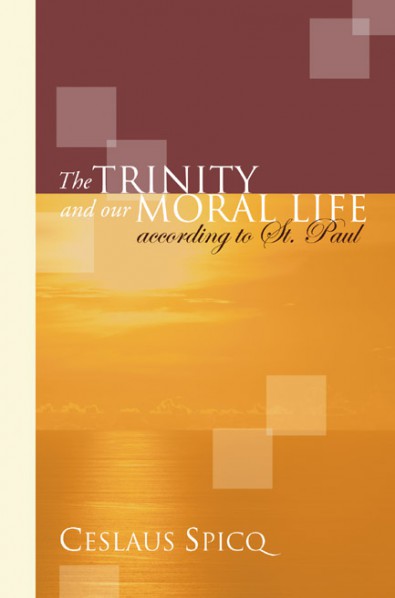
I don’ think I’m giving away any surprise endings if I share a couple of key paragraphs from a 1963 book, Ceslaus Spicq’s The Trinity and our Moral Life According to St. Paul.
After an introductory chapter on “the necessity of a revealed morality,” Spicq organizes the key chapters thus:
Ch. 2 From the Father
Ch. 3 In Christ Jesus
Ch. 4 By the Holy Spirit
and it’s near the end of that fourth chapter that he gives this summary:
Pauline morality has an easily discernible Trinitarian character. The Father, having taken the initiative in salvation out of love, communicates His grace and life to His children. It is He who makes us pass from “nothingness into existence” (Rom 4:17), “who gives life to all things” (1 Tim 6:13), and “who even raises us from the dead” (Heb 11:19). This gift of the Father requires from Christians total self-oblation and a corresponding response of gratitude, which they will manifest particularly by their fidelity; it requires also that they use the gifts they have received according to the intention of the God who gave them; in other words, for His glory.
Now the will of the Father –the Christian vocation– is that the faithful be true images of the crucified and glorious Christ. The moral life consists then in perfecting this resemblance to the Lord, in being inspired with His thoughts and sentiments, in imitating His virtues, in living in a symbiosis with Him, until the day when they will rejoin Him in heaven to reign with Him forever.
Because such an assimilation is impossible for a man left to his own strength, the third person of the Holy Trinity takes over the Christian at the time of his baptism; He enlightens him, guides him, entreats him, and strengthens him in every way. We have only to let ourselves be renewed and rejuvenated interiorly from day to day. Under the movement of the Holy Spirit, the moral life is a spiritual life in the strictest sense; for the sons of God become divine only when they become spiritual: “May the grace of the Lord Jesus Christ, and the love of God, and the communion of the Holy Spirit be with you all” (2 Cor 13:13; cf 2 Cor 1:21-22).
To live by faith means to participate in this life of the Trinity; it means to believe with one’s whole being that the three divine Persons do in reality communicate their life to us.
Spicq was a French Dominican, and his occasionally too-Roman way of putting things is evident even in this quotation. But so is his incredible saturation in biblical language, and his alertness to the weight of the key words in Paul. He also wrote a 3-volume Theological Lexicon of the New Testament and influential commentaries on Hebrews and the Pastoral Epistles.